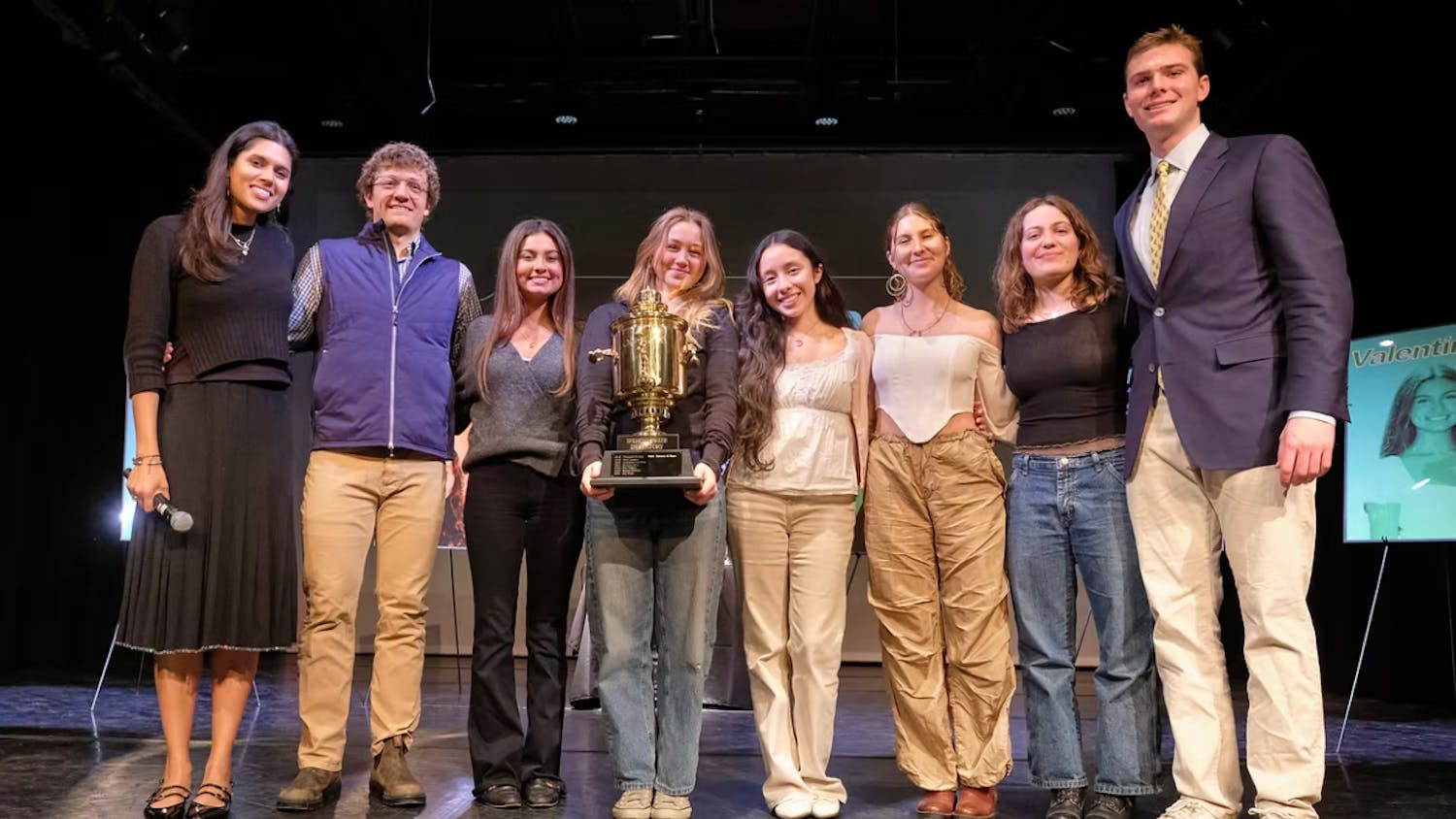For Vermont residents under 21, the use, possession and purchase of tobacco products and nicotine delivery systems is no longer legal in the state. The college’s newly-expanded Health and Wellness Education office will oversee efforts to support students seeking to quit smoking, and will spearhead campaigns to inform the community about the risks of tobacco and nicotine.
The “Tobacco 21” law went into effect Sept. 1 and applies to all tobacco products, substitutes, paraphernalia and nicotine delivery systems, including e-cigarettes like JUULs. Vermont is the 14th state to change the age for tobacco purchase from 18 to 21. In an all-campus email, Dean of Students Baishakhi Taylor announced that the college is supportive of this legislation because the relationship between young adults and nicotine can have drastic long-term consequences.
“The younger people are, the more likely they are to become addicted to nicotine,” she wrote.
Kevin Kareckas, who started as the college’s first alcohol and other drug education specialist this fall, said his work focuses on studying and changing the culture around substance use at Middlebury, especially in social settings. With the new Tobacco 21 legislation, a large part of his job has centered around the relationship between students and tobacco products.
There is ample evidence that smoking and vaping has long-term negative consequences. Ninety-nine percent of tobacco users start smoking before the age of 26, according to the U.S. Surgeon General, and nine out of 10 e-cigarette users switch to traditional cigarettes eventually. Smokers who began the habit before the age of 18 are much more likely to continue as adults.
“From a systemic point of view, this law is a big deal, but it’s also going to be a long uphill battle,” Kareckas said.
Middlebury is not a smoke-free or tobacco-free campus, although smoking is prohibited in all buildings, building structures like porches and balconies, and within 25 feet of any building. However, in the coming weeks, Taylor said that the Community Council will begin discussing “the scope of making our Vermont campus smoke-free.”
The school will offer resources through both the Health and Wellness Education office and the Parton Health Center to support all students, especially those disproportionately affected by the legislation change. Various institutions on campus will be adapting in different ways to accommodate the new laws.
Associate Director of Public Safety Keith Ellery said that the department is already adapting to the new laws.
“When members of our staff encounter an individual whom they believe to be under 21 and that individual is either smoking or in possession of tobacco products, they will be informed of the law and provided an informational card, which was developed by Middlebury College’s Office of Health and Wellness Education,” Ellery said. The card will describe the health impacts of nicotine use, resources for quitting and the legal guidelines.
Then, beginning in January or February, students under 21 who are found by Public Safety to have violated the policies of underage tobacco and nicotine use or possession will be subject to mandatory educational interventions similar to the educational interventions mandated by other drug or alcohol infractions. Additionally, a report with the names of students in violation of the policy will be sent to the Office of Community Standards.
Members of the Health and Wellness Education office are prepared to support students affected by the new legislation through several programs. Students who have a Public Safety encounter will begin a compulsory Tobacco Education program with Health and Wellness. This could include opt-in cessation programs like Freshstart, which gathers groups of students looking to quit tobacco for four hour-long meetings a semester. More information about this program will become available in October.
“We have no punitive approaches, it’s just us meeting people where they’re at,” Kareckas said. “I’m not a substance use counselor, so nothing I’m doing is going to change future behavior — I can’t make a decision for you and tell you that’s going to make a difference later. It’s really about providing the opportunity to reflect and use those strategies.”
Karekas himself hopes to become a resource to students struggling with tobacco and nicotine usage. To schedule appointments with him, students can go to go/meetwithkevin.
“People can also meet with me in person, one-on-one in an environment of their choosing, even if they’re just concerned about a friend,” he said.
The Parton Health Center will continue playing the same role it has in the past when it comes to student tobacco use, according to Managing Nurse Practitioner Sandy Robinson.
Parton has “historically counseled any student who discloses that they use tobacco of the dangers and advised that they quit,” Robinson said. Nurses refer students to 802quits.org, an online state resource for quitting tobacco. They have also referred students to cessation counselors as Porter Medical Center.
Robinson also described the unique threat of vaping and e-cigarette usage.
“We have recently become more concerned about the potential for an acute lung injury that has been attributed to vaping. It is our intention to screen students, when they present to the Health Center, for use of tobacco products, vape pens and e-cigarettes,” she said.
Parton’s nurse hotline, 802-443-3290, can be utilized during open hours for questions regarding tobacco and nicotine use.
Parton has always advised cessation, and their tobacco education and wellness related efforts will not change specifically as a result of Tobacco 21.
Students looking to learn more about campus resources can visit go/talktobacco.

Riley Board '22 is the Editor in Chief of The Campus. She previously served as a Managing Editor, News Editor, Arts & Academics Editor and writer.
She is majoring in Linguistics as an Independent Scholar and is an English minor on the Creative Writing Track.
Board has worked as a writer at Smithsonian Folklife Magazine and as a reporter for The Burlington Free Press. Currently, she is a 2021-2022 Kellogg Fellow working on her linguistics thesis. In her free time, you can find her roller skating in E-Lot or watching the same sitcoms over and over again.




